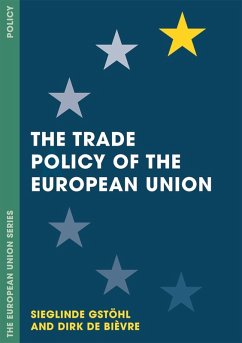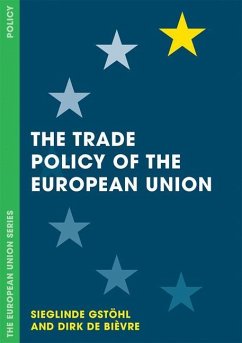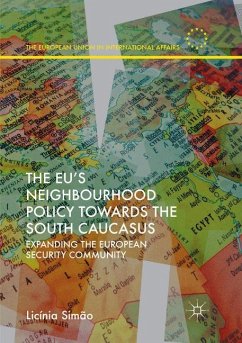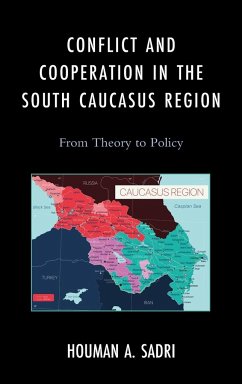
'Moral Power' of the European Union in the South Caucasus
Versandkostenfrei!
Versandfertig in 6-10 Tagen
83,99 €
inkl. MwSt.
Weitere Ausgaben:

PAYBACK Punkte
42 °P sammeln!
This book devises a new conceptual framework of 'moral power' and applies it to the policy of the European Union (EU) towards the South Caucasian states of Armenia, Azerbaijan and Georgia. It covers the period starting from the 1990s to the present and analyses policy domains (democracy promotion, conflict resolution, security, energy, trade) juxtaposing the policy of EU/member states with those of the United States (US), Russia, Turkey, Iran, as well as inter-governmental and regional organizations. 'Morality' is unpacked as composed of seven parameters: consequentialism; coherence; consisten...
This book devises a new conceptual framework of 'moral power' and applies it to the policy of the European Union (EU) towards the South Caucasian states of Armenia, Azerbaijan and Georgia. It covers the period starting from the 1990s to the present and analyses policy domains (democracy promotion, conflict resolution, security, energy, trade) juxtaposing the policy of EU/member states with those of the United States (US), Russia, Turkey, Iran, as well as inter-governmental and regional organizations. 'Morality' is unpacked as composed of seven parameters: consequentialism; coherence; consistency; normative steadiness; balance between values and interests; inclusiveness; and external legitimacy. 'Power' is branched into 'potential', 'actual' and 'actualized' types. 'Moral power' is consequently developed as an objective and neutral framework to capture the foreign policy of an international actor in any geographic area and policy sphere. The book will be useful for students and scholars of International Relations and EU Studies, policy-makers and practitioners.












